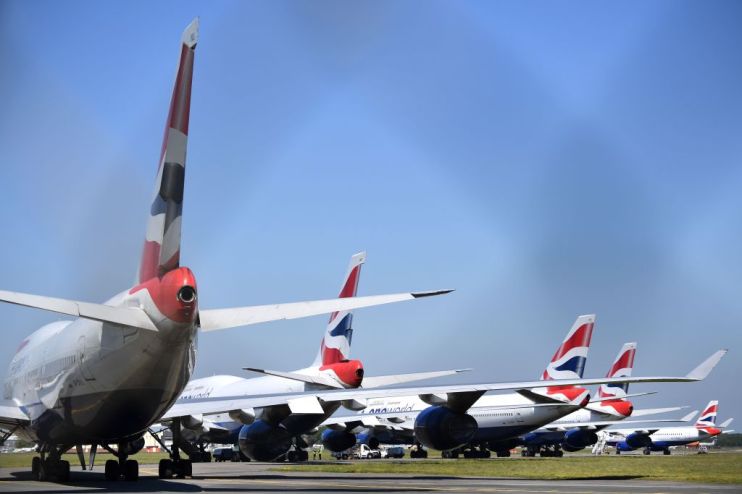British Airways owner IAG targets ‘meaningful return’ to flying in July

British Airways owner IAG has announced that it is targeting a “meaningful return” to operating flights in July, but warned passenger numbers across the whole year could fall by 50 per cent.
The airline warned that it did not expect to see a return to pre-coronavirus passenger numbers until 2023, meaning further restructuring would be necessary.
The figures
The announcements came as IAG reported its first quarter results, which saw it swing to a €535m (£466.3m) loss in the period.
Total revenue also dropped 13.4 per cent to €3.95bn as the coronavirus pandemic sent the entire airline industry into a tailspin.
Since late March, IAG said its airlines had been operating at a 94 per cent lower passenger capacity, whilst across the whole period numbers were 10.5 per cent down.
The firm said that it had liquidity of around €10bn, and has tapped both the Bank of England’s corporate financing facility and the Spanish government’s equivalent to protect against further financial damage.
Nonetheless, the airline group warned that the second quarter, in which the bulk of the damage from the coronavirus has been concentrated, would be far worse for its results.
As a result of the long-term slump in passenger demand, IAG said it would defer the delivery of 68 planes.
It has also reduced capital spending plans by €1.2bn, and has more than halved its weekly costs from €440m to €200m.
Why it’s interesting
IAG has already made sweeping changes in order to deal with the crisis, and last week announced that 12,000 jobs at flag carrier BA would be lost in the restructuring.
The group warned that the long-term effects of the crisis would be such that “further essential group-wide restructuring measures” would be taken.
Chief executive Willie Walsh, who extended his term of service in order to guide the group through the crisis, will now step down in September, it was confirmed.
Luis Gallego, current chief executive of Spanish flag carrier Iberia, will take over as previously planned.
What IAG said
Walsh said: “The operating result up to the end of February was in line with a year ago.
“However, March’s performance was severely affected by government travel restrictions due to the rapid spread of COVID-19 which significantly impacted demand. Most of the loss in the quarter occurred in the last two weeks of March.
“We are planning for a meaningful return to service in July 2020 at the earliest, depending on the easing of lockdowns and travel restrictions around the world.
“However, we do not expect passenger demand to recover to the level of 2019 before 2023 at the earliest. This means group-wide restructuring is essential in order to get through the crisis and preserve an adequate level of liquidity”.